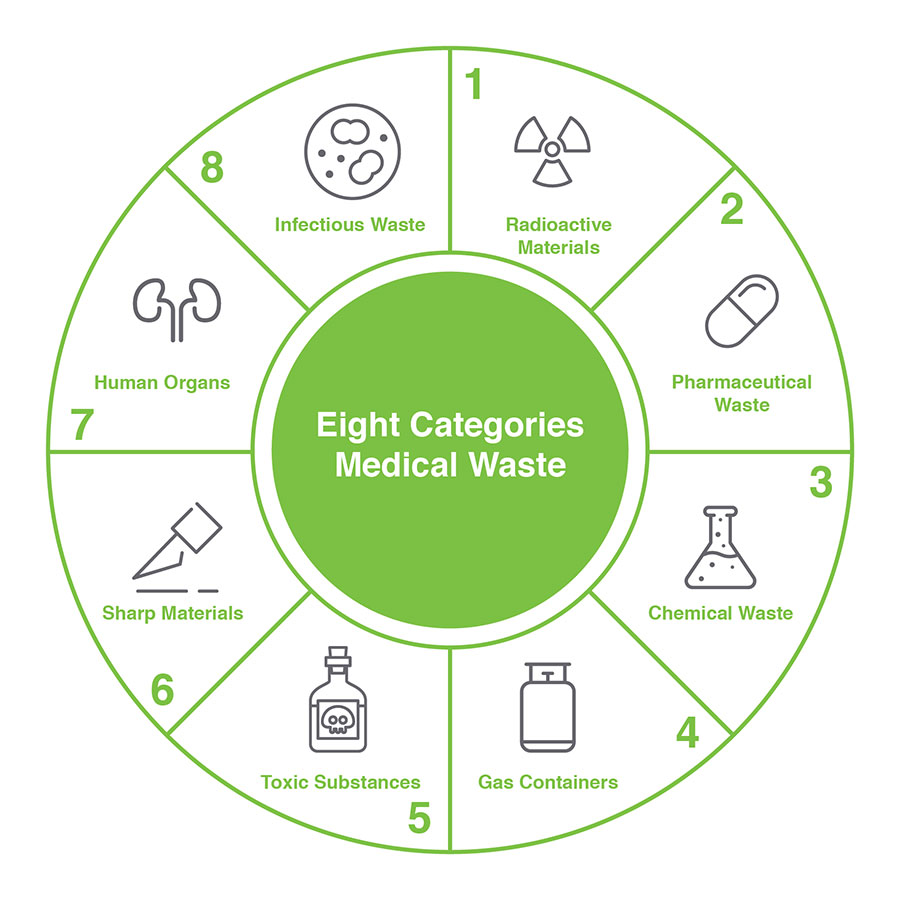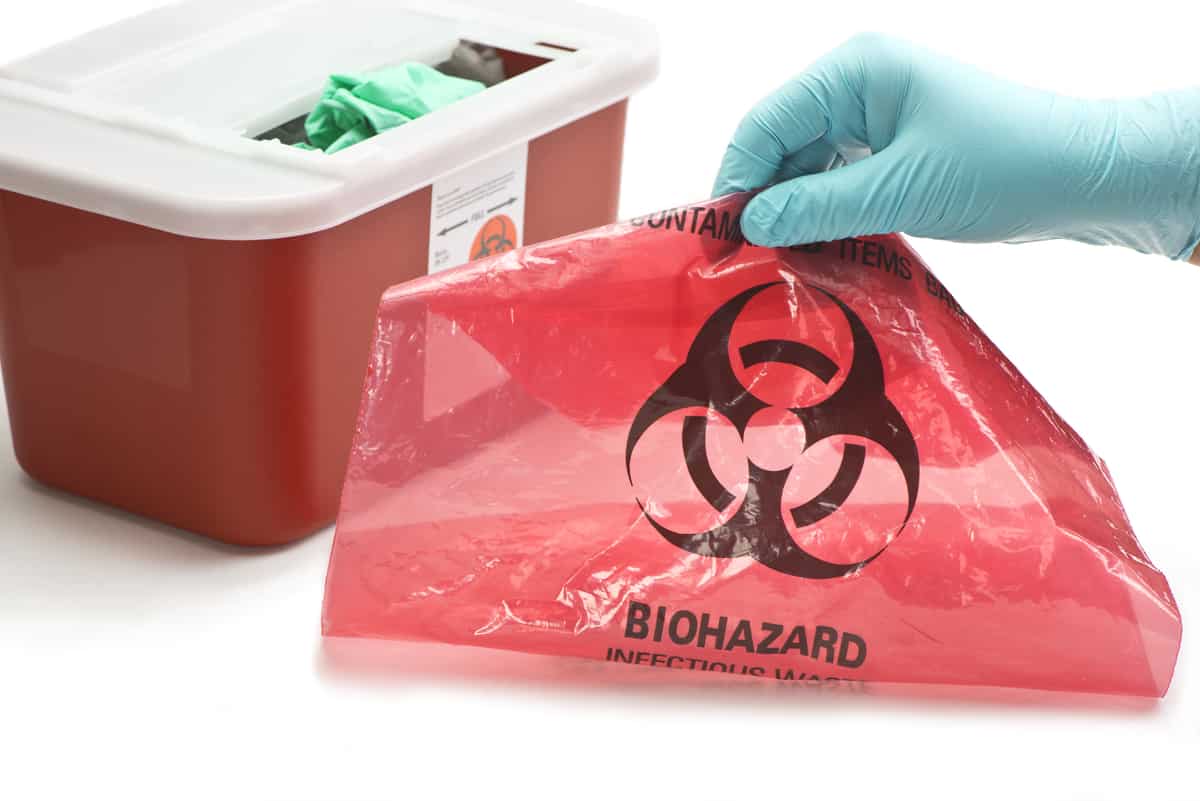Shielding Health: Expert Medical Waste Removal Services for a Tidy Setting
Shielding Health: Expert Medical Waste Removal Services for a Tidy Setting
Blog Article
Remain Ahead of Rules: Expert Guidance on Medical Waste Disposal
In a globe where the health care market is continuously developing, it is important for medical centers to remain in advance of guidelines when it comes to the proper disposal of clinical waste. From comprehending the different classifications of medical waste to implementing the appropriate collection and segregation approaches, this conversation will provide beneficial insights and workable ideas to help centers stay in advance of guidelines in the ever-changing landscape of clinical waste disposal.
Comprehending Clinical Waste Categories
Understanding medical waste categories is crucial for appropriate disposal and administration in healthcare centers. Medical waste describes any waste produced by healthcare tasks that may present a threat to public health and wellness or the setting. It is vital to categorize clinical waste properly to ensure its risk-free handling, treatment, transport, and disposal.
There are several classifications of medical waste that medical care facilities need to be acquainted with. One of the most common groups include contagious waste, pathological waste, sharps waste, pharmaceutical waste, and chemical waste. Each group has specific guidelines and guidelines for its correct administration and disposal.
Pathological waste refers to human tissues, organs, or body parts that require special handling and disposal. Drug waste comprises expired, unused, or polluted medications that require cautious handling and disposal.
Staying Up-To-Date With Regulatory Modifications
Staying current with regulative changes is important for health care facilities to ensure compliance and appropriate administration of medical waste disposal. medical waste removal services. With guidelines regularly advancing, it is important for healthcare centers to remain updated to stay clear of penalties, penalties, and prospective harm to the environment and public wellness
To remain ahead of regulatory adjustments, health care facilities must establish a system for tracking and tracking updates. This can be done by registering for regulative e-newsletters, going to workshops and meetings, and actively participating in market associations. Additionally, centers should mark an employee or team liable for staying educated and disseminating details to relevant stakeholders.
Normal communication with governing companies is additionally essential. Medical care facilities need to establish partnerships with local, state, and federal firms to ensure they recognize any type of adjustments in policies that might influence their waste management methods. This can be done with regular conferences, participation in public remark durations, and aggressive engagement with governing companies.
Furthermore, medical care centers must consider partnering with waste monitoring companies that concentrate on medical waste disposal (medical waste disposal services with WasteX). These business are usually well-versed in the most up to date laws and can give assistance and support to make sure conformity
Applying Proper Collection and Partition Methods
To efficiently handle clinical garbage disposal, health care centers must establish proper collection and segregation methods according to regulatory standards. Implementing these methods ensures the safe handling and disposal of possibly unsafe materials, shields the setting, and decreases the threat of injuries and infections to health care employees and the public.
Proper collection and partition approaches include using assigned containers and identifying systems. Medical care facilities should provide plainly identified containers for various kinds of medical waste, such as sharps, contagious waste, pharmaceutical waste, and non-hazardous waste. These containers ought to be color-coded and plainly significant to avoid confusion and promote very easy recognition.
Additionally, healthcare centers must educate their personnel on the right procedures for collecting and setting apart medical waste. click to investigate This consists of informing them on the different sorts of waste, the proper containers to use, and the importance of following standards and policies. Regular training sessions and refresher training courses must be conducted to make sure that employee continue to be updated on ideal methods.
Furthermore, healthcare centers ought to develop a system for regular collection and disposal of clinical waste. This may entail partnering with accredited waste management business that specialize in medical garbage disposal. These business will ensure that the gathered waste is transferred and disposed of in compliance with governing demands.
Picking the Right Disposal Techniques
Incineration is just one of one of the most efficient and typical methods for throwing away particular sorts of clinical waste, such as pathological waste and sharps. It involves the controlled combustion of waste at heats, lowering it to ash. Incineration can release damaging contaminants into the air and contribute to air pollution.

Chemical treatment involves the use of chemicals to right here sanitize and counteract the waste. Microwave therapy makes use of microwave power to warmth and decontaminate the waste.
Guaranteeing Conformity Via Documentation and Training
After thoroughly thinking about the proper disposal techniques for medical waste, health care facilities should make sure compliance with guidelines and lessen ecological impact by implementing effective documents and training treatments. This action is critical in keeping a safe and lasting atmosphere for both health care workers and the public.

Medical care workers who handle medical waste must get ideal training on waste partition, managing, and disposal procedures. By giving thorough training, medical care facilities can encourage their team to make educated choices and lessen the risk of improper waste disposal.
Final Thought
To conclude, staying ahead of regulations in medical garbage disposal is critical for medical care facilities. medical waste removal. Understanding the different classifications of medical waste, staying upgraded with regulatory adjustments, applying correct collection and partition techniques, selecting the appropriate disposal approaches, and ensuring compliance through documents and training are all crucial actions. By following these standards, health care companies can successfully get rid of and manage of clinical waste in a risk-free and responsible manner
From recognizing the different categories of clinical waste to executing the appropriate collection and segregation approaches, this conversation will provide beneficial insights and workable suggestions to assist facilities stay in advance of guidelines in the ever-changing landscape of medical waste disposal. - medical waste disposal services with WasteX
The most usual classifications consist of transmittable waste, pathological waste, sharps waste, pharmaceutical waste, and chemical waste. Healthcare facilities ought to supply plainly identified containers for various kinds of medical waste, such as sharps, infectious waste, pharmaceutical waste, and non-hazardous waste. Healthcare facilities ought to develop a thorough system to videotape and track all aspects of medical waste disposal, including types of waste generated, quantities, and disposal methods used. Healthcare workers that take care of clinical waste needs click for source to obtain ideal training on waste partition, dealing with, and disposal procedures.
Report this page